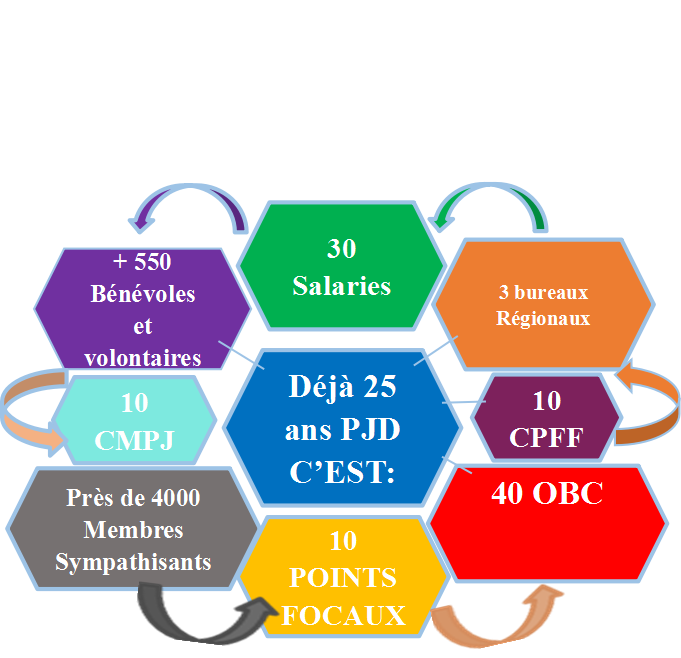- Autoroute Yaoundé-Nsimalen, lieu dit Ola Ahala
- (+237) 222 23 36 34
- secretariat@pressejeunedev.org
- FR


Our actions | Proven community anchoring
Since 1997 (25 years), the organization has worked with policy makers, national, regional and global health partners, civil society, academia, the private sector, local communities, religious authorities and traditional, media and celebrities to help develop, implement social development policies.
PJD has a stable and deeply embedded community base within all national communities in order to leave no community behind. With the aim of being much closer to the underprivileged strata wherever the need arises, PJD is: one (01) central office, three (03) regional offices, 27 direct employees, sixty (60) implementation partners implementation of activities (40 CBOs, 20 Multifunctional Youth Centers), ten (10) focal points, over five hundred and fifty (550) volunteers and nearly five thousand (5000) members and supporters.
This whole base reflects, if need be still proved, the integration of the organization within most of the communities and allows PJD a rapid and active deployment in the field with the assurance of carrying out well all the most complex projects and to effectively reach the target wherever it is located on the national territory.
As a subrecipient of the Global Fund to Fight AIDS, Tuberculosis and Malaria, PJD is well aware that after more than a decade of community responses to HIV/AIDS, joint action through multiple approaches to Prevention is needed to end transmission. HIV epidemic. Several methods and interventions have been shown to be very effective in reducing and preventing HIV infection, including male and female condoms, the use of antiretroviral drugs such as PrEP, behavior change communication to limit the number of sexual partners and treatment of HIV-infected patients to reduce viral load and prevent the spread of the virus.
However, the strategy based on a dense communication for the modification of behaviors remains and remains a salutary and essential action only in the reduction of new infections.




















